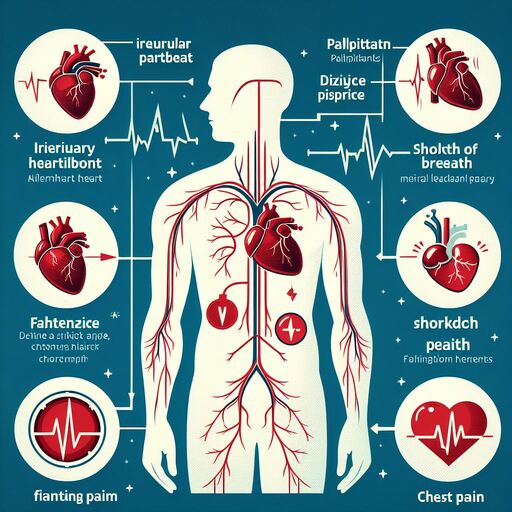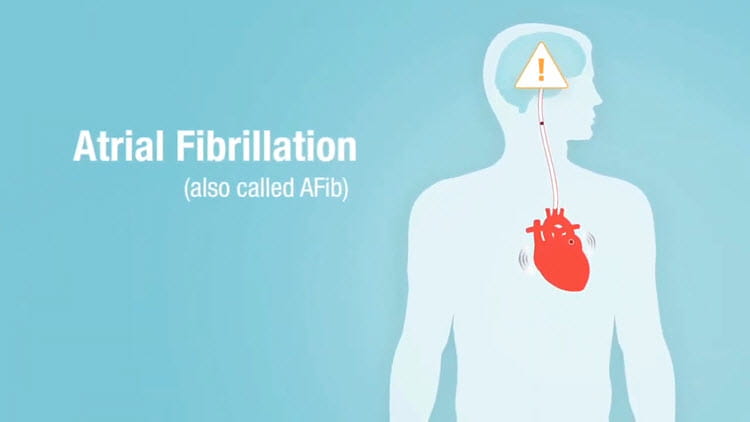Signs and Symptoms of Atrial Fibrillation
Signs and Symptoms of Atrial Fibrillation
Atrial fibrillation (AF) is a common type of irregular heartbeat that can cause symptoms such as rapid, fluttering or irregular heart palpitations, fatigue, shortness of breath, weakness, dizziness, and chest pain.
The signs and symptoms of atrial fibrillation can vary depending on the severity and duration of the condition. In some cases, individuals with AF may not experience any noticeable symptoms, while in others, symptoms may be severe enough to interfere with daily activities.
It’s important to note that some symptoms of AF can overlap with other medical conditions, so it’s important to seek a proper diagnosis from a healthcare provider. A healthcare provider can perform a physical exam and order diagnostic tests such as an electrocardiogram (ECG) or Holter monitor to confirm the diagnosis of AF and determine the underlying cause.
There are several factors that can contribute to the development of atrial fibrillation, including age, family history, smoking, alcohol consumption, stress, certain medications, thyroid dysfunction, and heart disease. Treatment options for AF include medications such as beta-blockers, calcium channel blockers, rate control drugs, and anticoagulants to prevent blood clots.
In some cases, lifestyle changes such as weight loss, regular exercise, stress management, and smoking cessation may also be effective in managing symptoms of AF. In addition, surgery such as catheter ablation or radiofrequency ablation may also be used to treat AF in some cases.
It’s important to manage any underlying medical conditions that may be contributing to your symptoms of atrial fibrillation. This may include medications, lifestyle changes such as diet and exercise, or other interventions such as cardioversion or pacemaker insertion. Your healthcare provider can help you develop a comprehensive treatment plan that addresses your specific needs and goals for managing your AF.
In summary, atrial fibrillation is a common type of irregular heartbeat that can cause symptoms such as rapid, fluttering or irregular heart palpitations, fatigue, shortness of breath, weakness, dizziness, and chest pain. It’s important to seek a proper diagnosis from a healthcare provider and develop an appropriate treatment plan to manage symptoms and prevent complications.
Signs and Symptoms of Atrial Fibrillation

